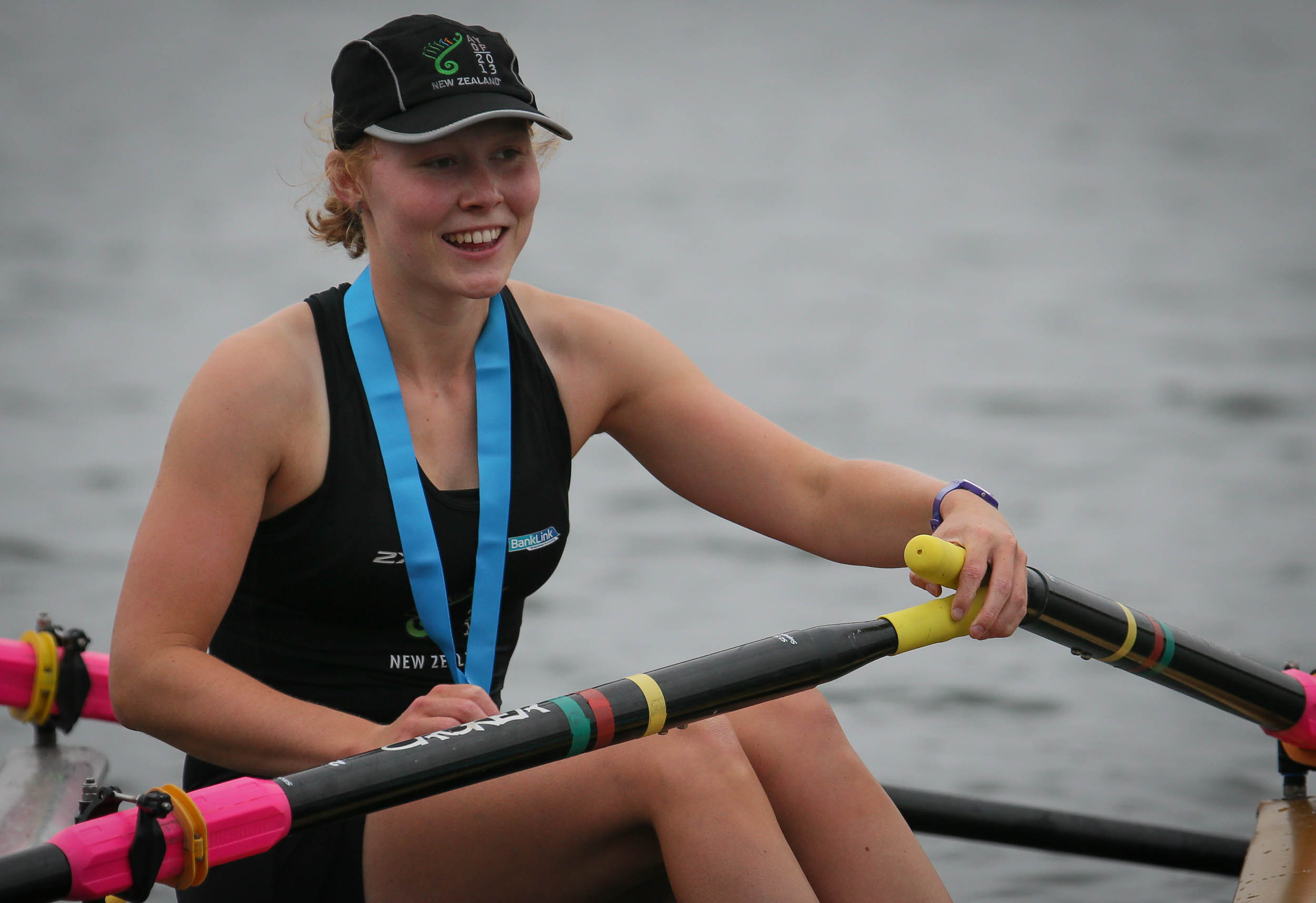Introducing Jackie Kiddle
0In July, Wellington’s Jackie Kiddle, along with Zoe McBride, won the women’s lightweight double final at the under-23 World Rowing Championships in Bulgaria. In doing so they broke the world best time by a margin of almost five seconds.
As a nation we are almost becoming blasé about new standards of excellence in international rowing. However, such success involving a young Wellingtonian is much rarer. From a national perspective, rowing is a comparatively minor sport in Wellington. Perhaps that is why Kiddle’s achievement generated only a passing mention in the media here.
Rowing is tough. It involves hours and hours of training year after year, and the single-minded determination that goes with that. When children turn up at Star Boating Club in Frank Kitts Park and find the water is too choppy to train on, as is often the case, they take turns between sessions on the rowing machines, and running to the top of Mount Victoria and back.
They do that all over again the following morning, and then after school again that day. That hones the fitness, but what makes it tougher for those growing up in Wellington is the comparative lack of time on the water.
As Kiddle says “During my time with the North Island U18 team in 2011, I remember talking to some of the others and when I told them we got on the water maybe once a fortnight they were absolutely stunned, those from Auckland and Cambridge could get on twice a day. This to me was something I had never even considered doing before.”
In her first experience with rowing in a team outside of Wellington, she was grilled by the coach for her bad catch (the point of the stroke in which the blade enters the water) because it was so slow. She was told that it was so bad because of having to hold the handle down in order to clear the rough waves of the Wellington harbour.
In addition to the climatic challenges, or perhaps because of them, rowing in Wellington does also not have quite the buy-in from the colleges as in other parts of New Zealand.
For example, at Hamilton Boys’ High School boys playing for the First XV are made to take part in that school’s rowing programme over summer. The only excuse is if you are playing for the First XI in cricket. Rowing is also compulsory as part of the Year Nine PE curriculum. Here, the sport is run by a thoroughly dedicated group of people, but it is on a much smaller scale.
There are some advantages though. Kiddle’s favourite memory was when training off Oriental Bay being trailed by an orca, providing a decent rush of adrenalin. You do not get that on the Waikato River.
Despite these challenges, that training paid off; a Maadi Cup gold in 2012 representing Wellington Girls College led to selection in the NZ U21 team the following year with two Gold medals in Trans-Tasman competition.
The following year saw selection in the New Zealand U23 team, building up to the new World Best time this year.
To achieve this after leaving school, Kiddle inevitably had to leave Wellington; initially to the Central Regional Performance centre based in Blenheim, and more recently to Cambridge. While this means considerably more time on the water it does make things harder in terms of sponsorship. Kiddle, and other Wellington raised rowers, do get help from their own clubs, but distance from the Capital means they do not have the wider profile.
Despite this the determination remains, and the results speak for themselves. Rio has probably come around a year too early, but look out for her growing list of achievements. Even if you have to look hard for that coverage here in Wellington.
Article originally appeared in October’s issue of Fishhead magazine

